Switzerland backs full EU sanctions against Russia
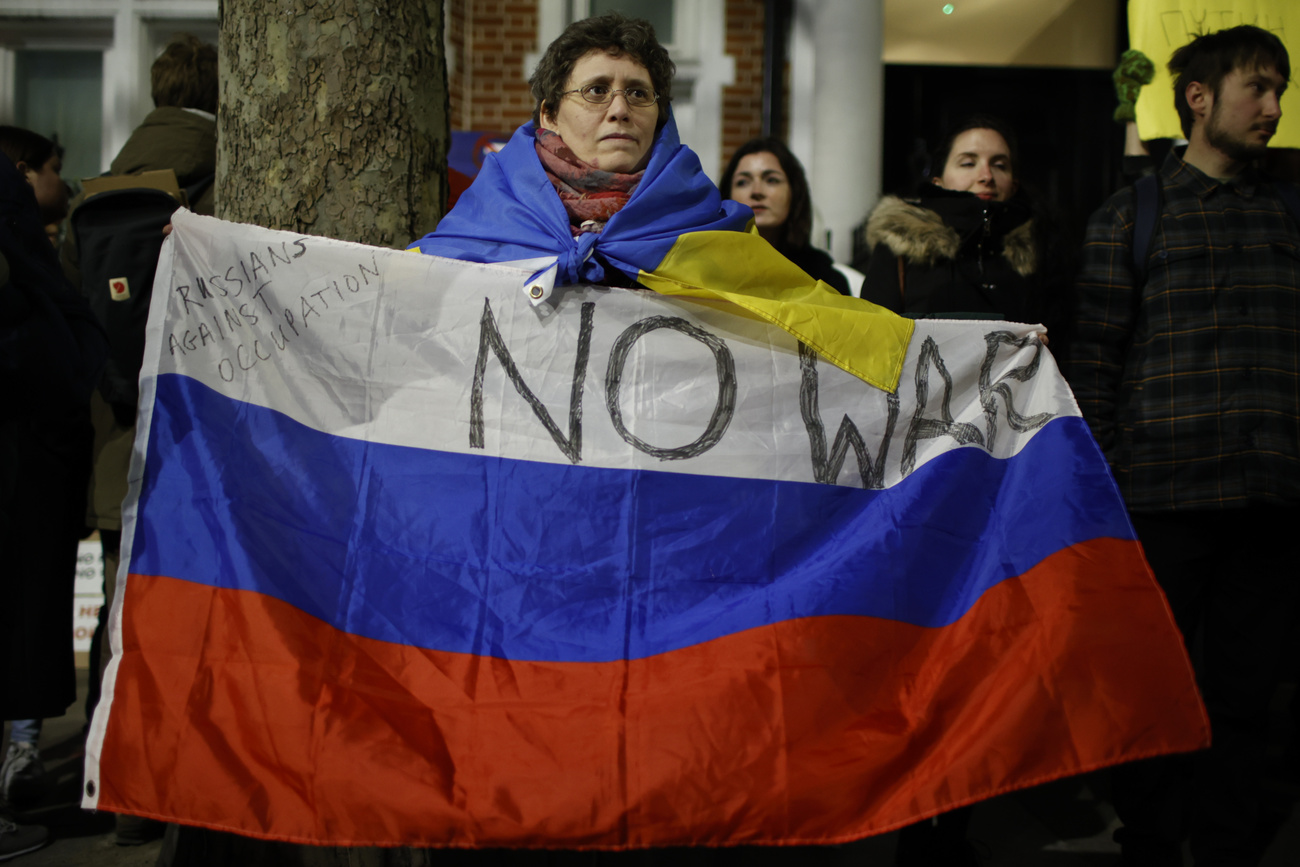
Switzerland has backtracked on its previous stance by deciding to adopt the full range of sanctions imposed by the European Union against Russia's attack on Ukraine.
It was a unique and difficult step which is compatible with the country’s traditional neutrality, Swiss President Ignazio Cassis said in a statement read out in three languages – Italian, German and French – during a news conference attended by four of the government’s seven members on Monday.
Cassis called Russia’s invasion of Ukraine an “attack on sovereignty, freedom, democracy and the population and institutions of a free country”, which also affected Switzerland. “Playing into the hands of an aggressor is not neutral,” he added.
“The defence of peace and security and respect for international law are values that Switzerland, as a democratic country, shares with its European neighbours,” he said.
Neutral Switzerland had previously declined freezing the assets of Russian individuals and companies, drawing harsh criticism both at an international and domestic level. Cassis said the government first had to examine possible repercussions of punitive measures for Switzerland before it could act.
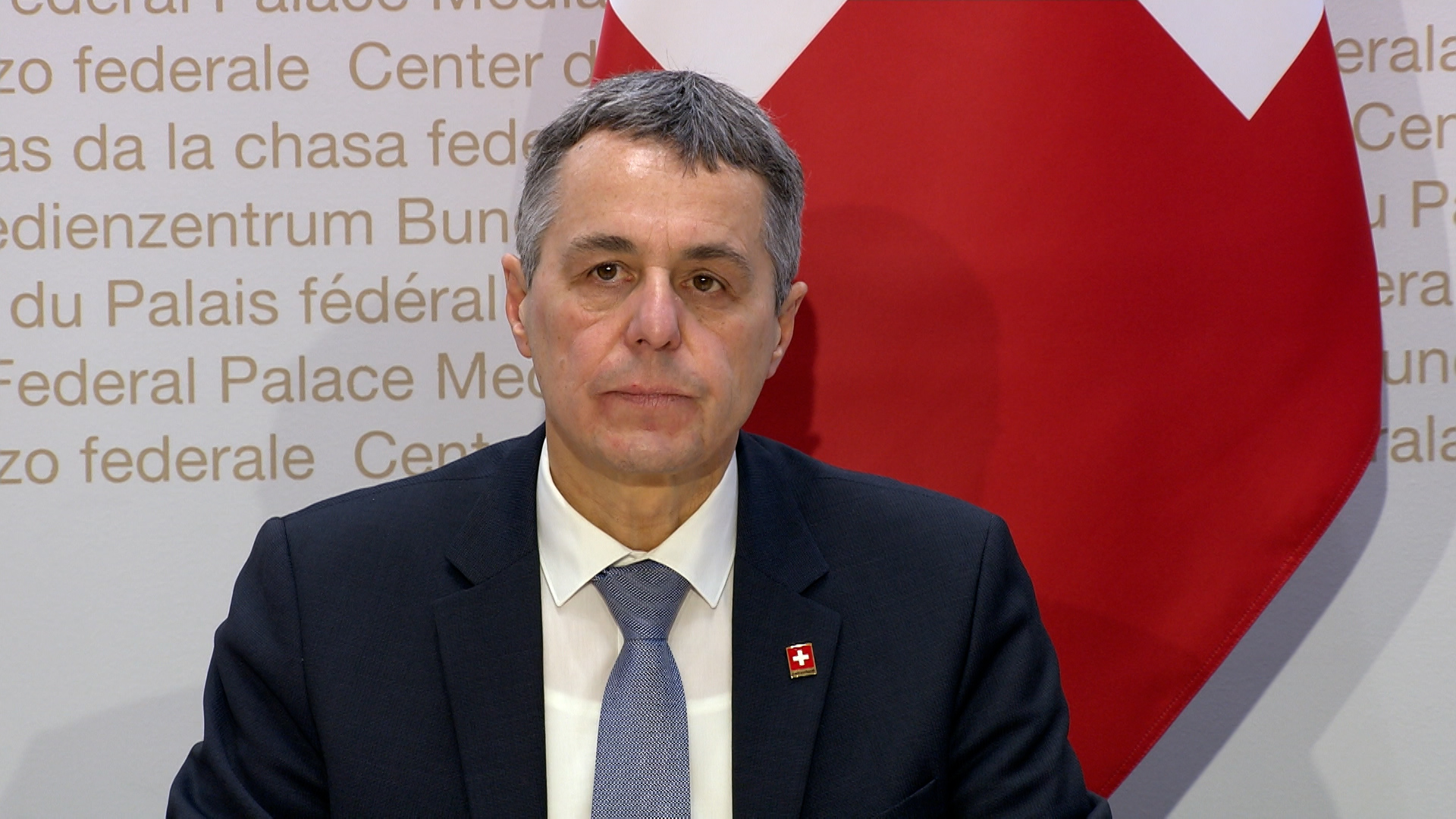
More
Swiss government sanctions u-turn
The Swiss government continues to offer its good offices to all sides in the conflict but it will also examine each further package of sanctions imposed by the EU on a case-by-case basis.
Switzerland has blocked with immediate effect the assets of 363 individuals and four corporate entities. This includes Russian President Vladimir Putin, Prime Minister Mikhail Mishustin and Foreign Minister Sergei Lavrov.
Also on Monday, Switzerland followed suit with other European countries in closing its airspace to Russian flights.
The foreign ministry is advising all Swiss nationals to leave UkraineExternal link and to contact the embassy in Kyiv if they experience difficulties.
In an initial move last week, the Swiss government imposed travel restrictions on sanctioned Russians and had forbidden Swiss banks from engaging in any future financial business with these individuals and companies.
Swiss support SWIFT ban
“The ban on imports, exports and investments concerning Crimea and Sevastopol, which has been in place since 2014, has been extended to the Ukrainian regions of Donetsk and Luhansk, which are no longer under the control of the Ukrainian government,” read a government statementExternal link.
Finance Minister Ueli Maurer played down links between the Swiss and Russian financial centres, which he described as “very small”. He added that Switzerland would support an international decision to cut Russian banks off from the global SWIFT bank messaging system.
Russians held nearly CHF10.4 billion ($11.24 billion) in Switzerland in 2020, Swiss National Bank data show.
Defence Minister Viola Amherd said Switzerland is bracing itself for retaliatory measures by Russia. “Specifically, we are thinking of areas such as energy supply, refugee flows and cyber-attacks,” she said.
For her part, Justice Minister Karin Keller-Sutter said Switzerland had imposed travel bans for five oligarchs believed to belong to Putin’s entourage.
It was also announced on Monday that Switzerland would deliver 25 tonnes of humanitarian relief supplies to the Ukrainian-Polish border. Staff from the Humanitarian Aid Unit are accompanying the delivery, which also includes Swiss army medical supplies.
Some 500,000 people have fled Ukraine and sought refuge in Poland and other neighbouring countries since the Russian offensive began, according to the United Nations refugee agency.
Parliament
The Swiss parliament opened its three-week spring session with statements about the conflict in Ukraine.
The speakers of the Senate and the House of Representatives stressed that Switzerland’s neutrality was no excuse to tolerate Russia’s attack against Ukraine. The house also observed a minute of silence for the victims of the war.
Most of Switzerland’s main political parties have come out in favour of tough sanctions. However, the right-wing People’s Party argues Switzerland risks losing its neutral status if it takes measures against Russia.
Swiss Solidarity has launched a fundraising campaign to help cope with an expected humanitarian crisis in Ukraine. Donations can be paid via postal account 10-15000-6, adding the words “Crisis in Ukraine”.
In a first phase, the money will be used to help refugees in countries neighbouring Ukraine, notably in Poland. Swiss Solidarity works with charities and aid organisations, including Caritas, HEKS/EPER, the Swiss Red Cross, Helvetas, Medair, Médecins Sans Frontières and the Terre des hommes foundation.
If possible and if necessary, aid projects will also be supported in Ukraine.
The money goes exclusively towards humanitarian aid.
Swiss SolidarityExternal link is an independent foundation. It was born from a programme by the French-language public radio and is now the humanitarian arm of the Swiss Broadcasting Corporation, the parent company of SWI swissinfo.ch.

In compliance with the JTI standards
More: SWI swissinfo.ch certified by the Journalism Trust Initiative
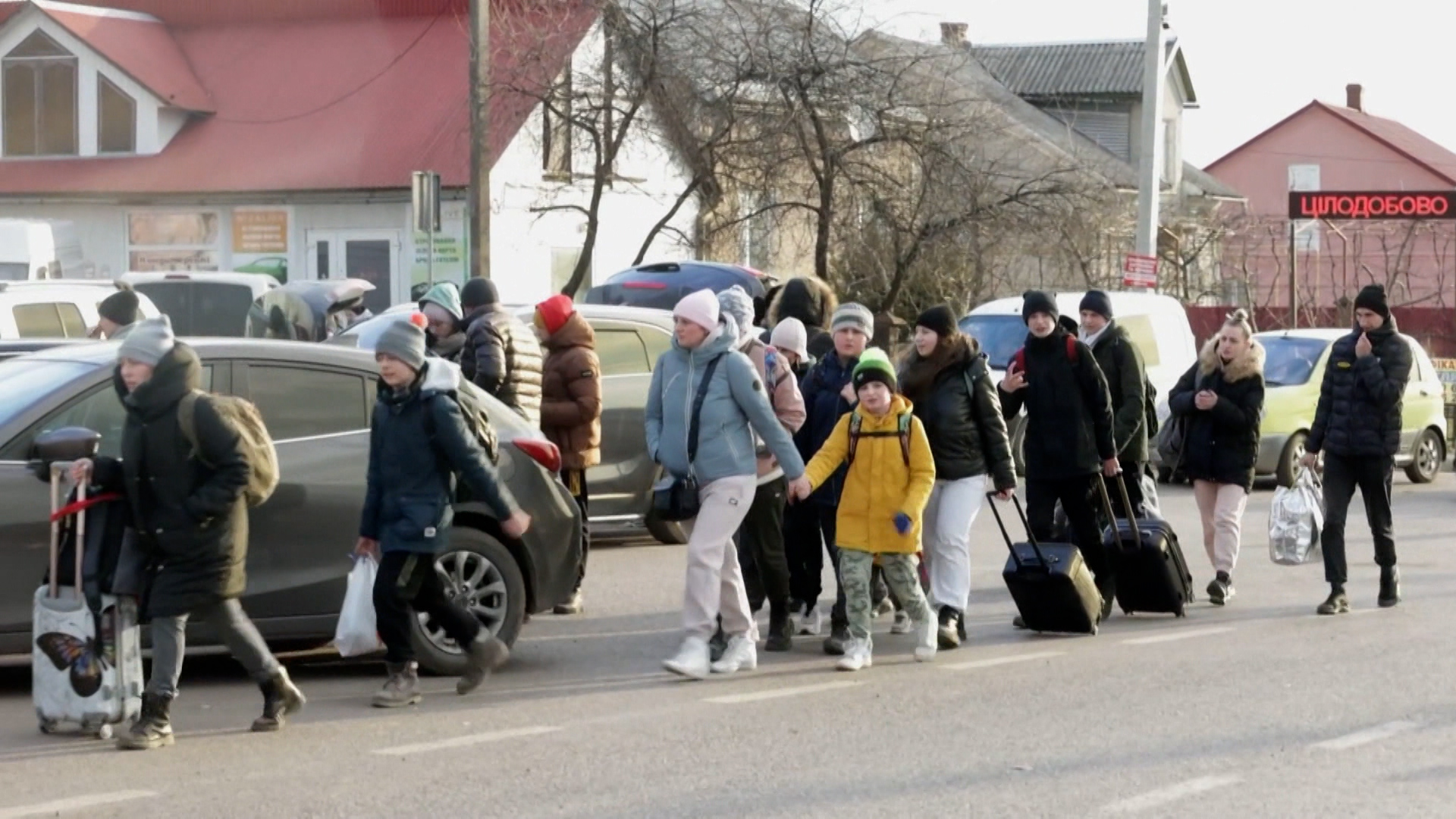
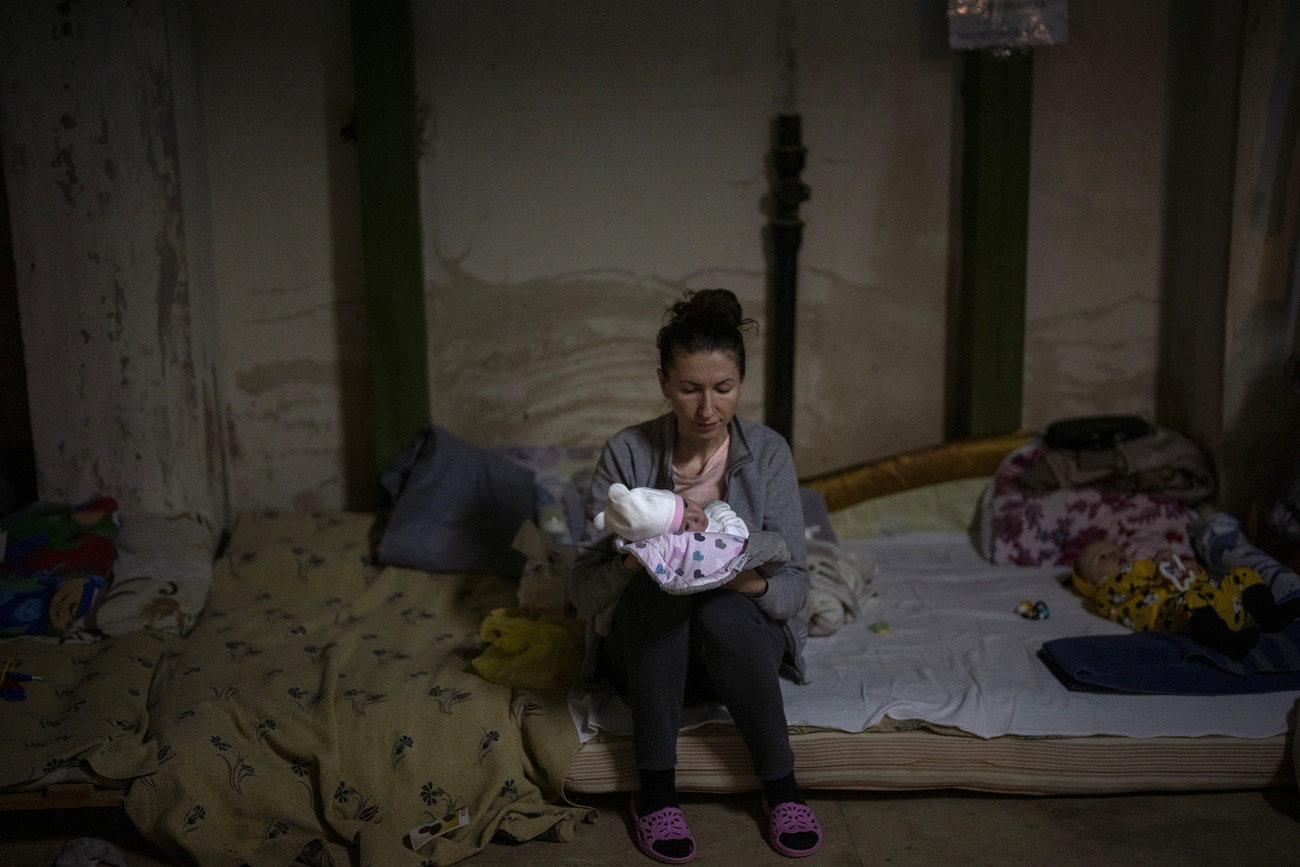
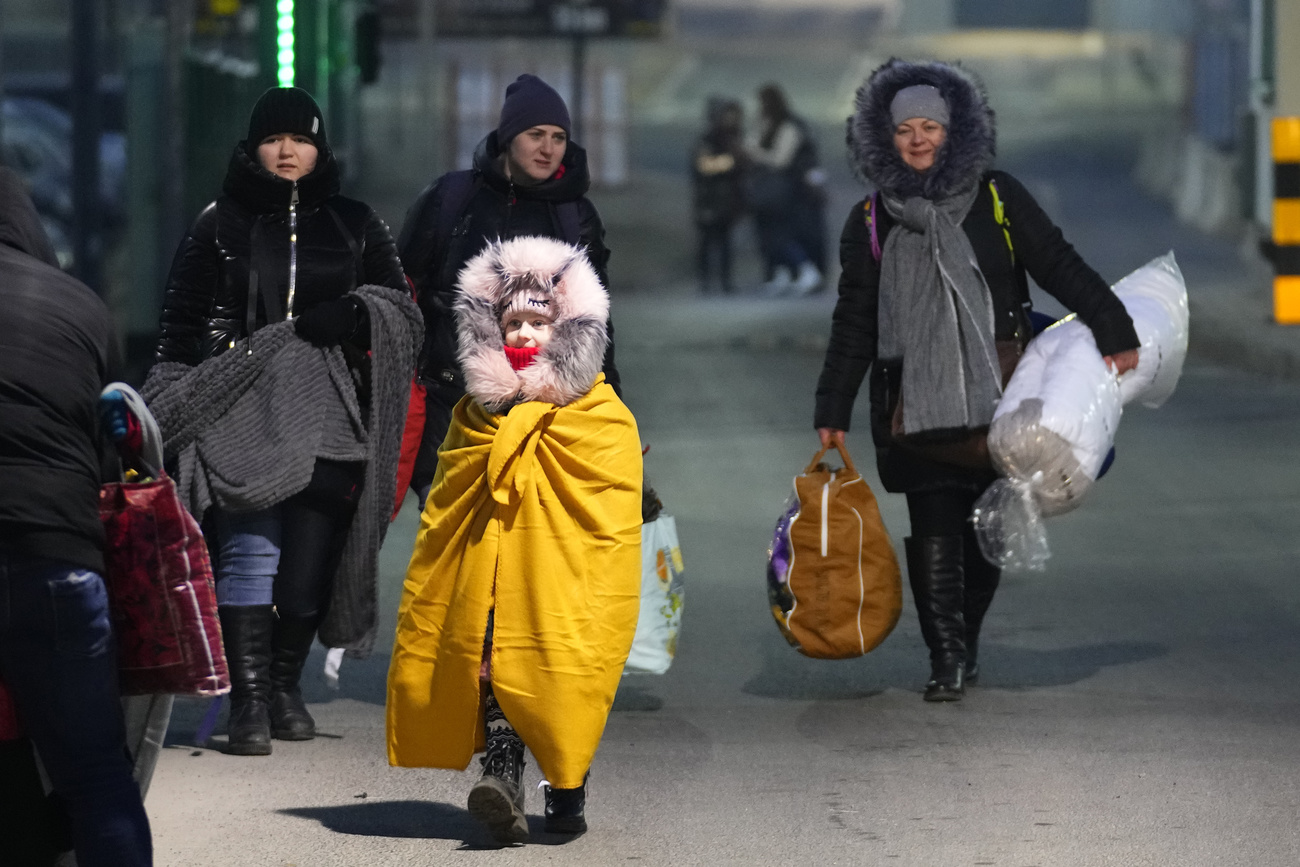
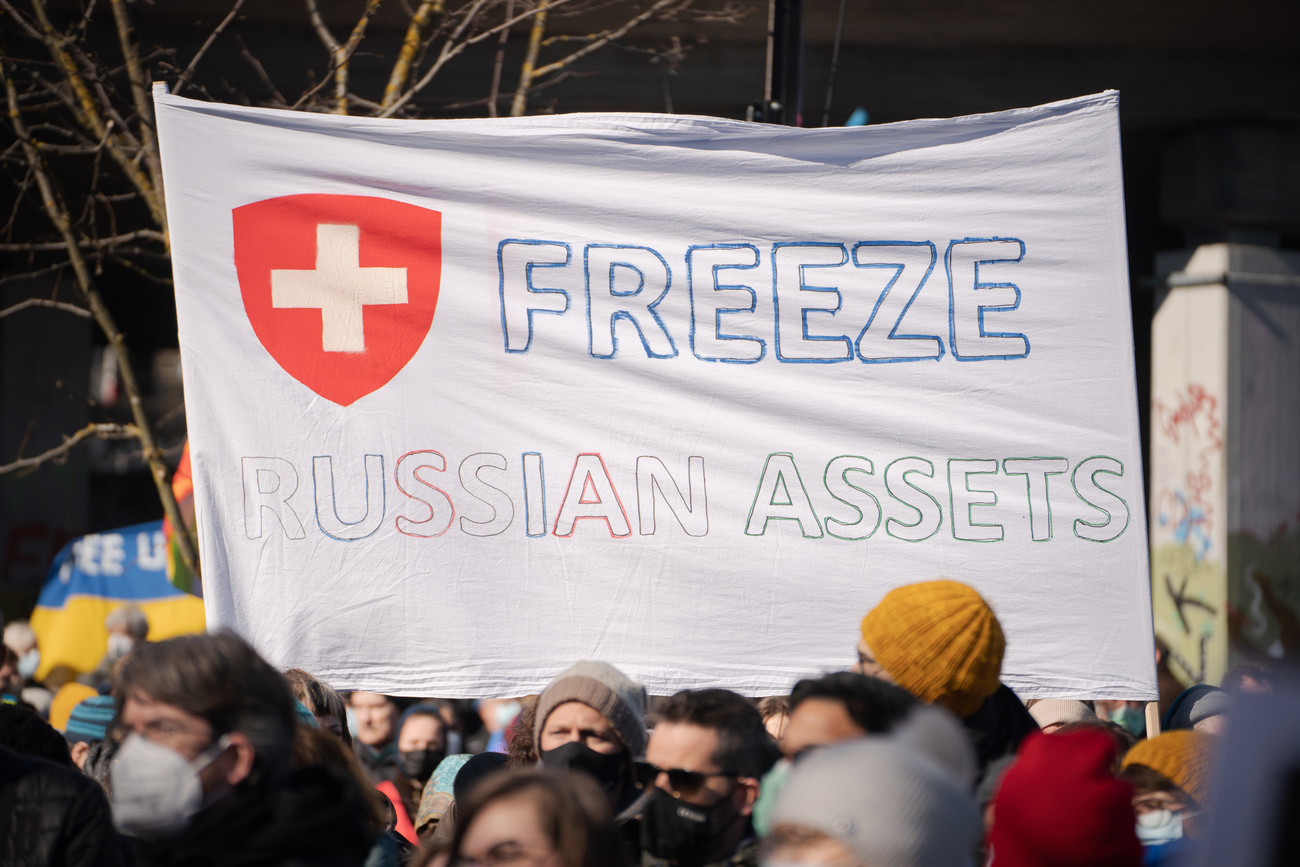
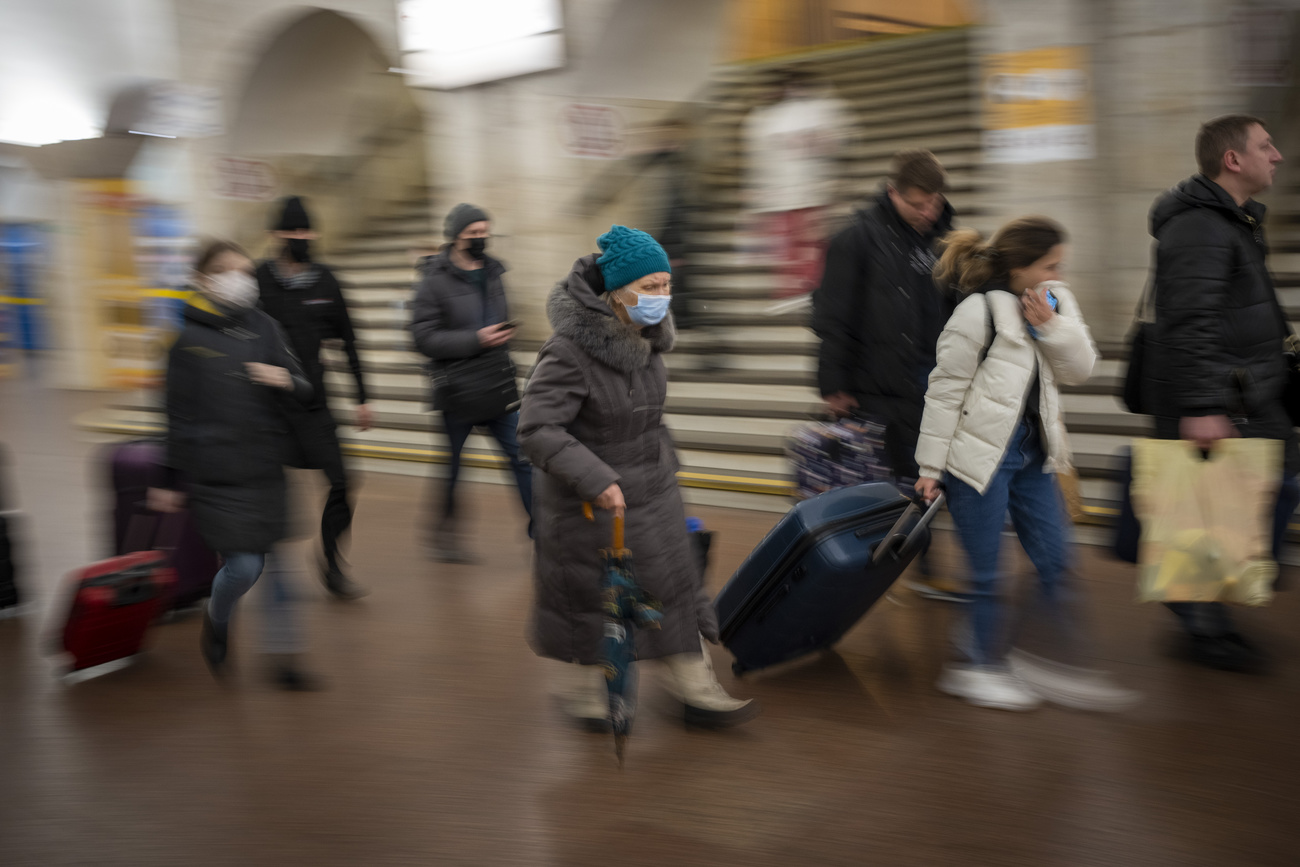
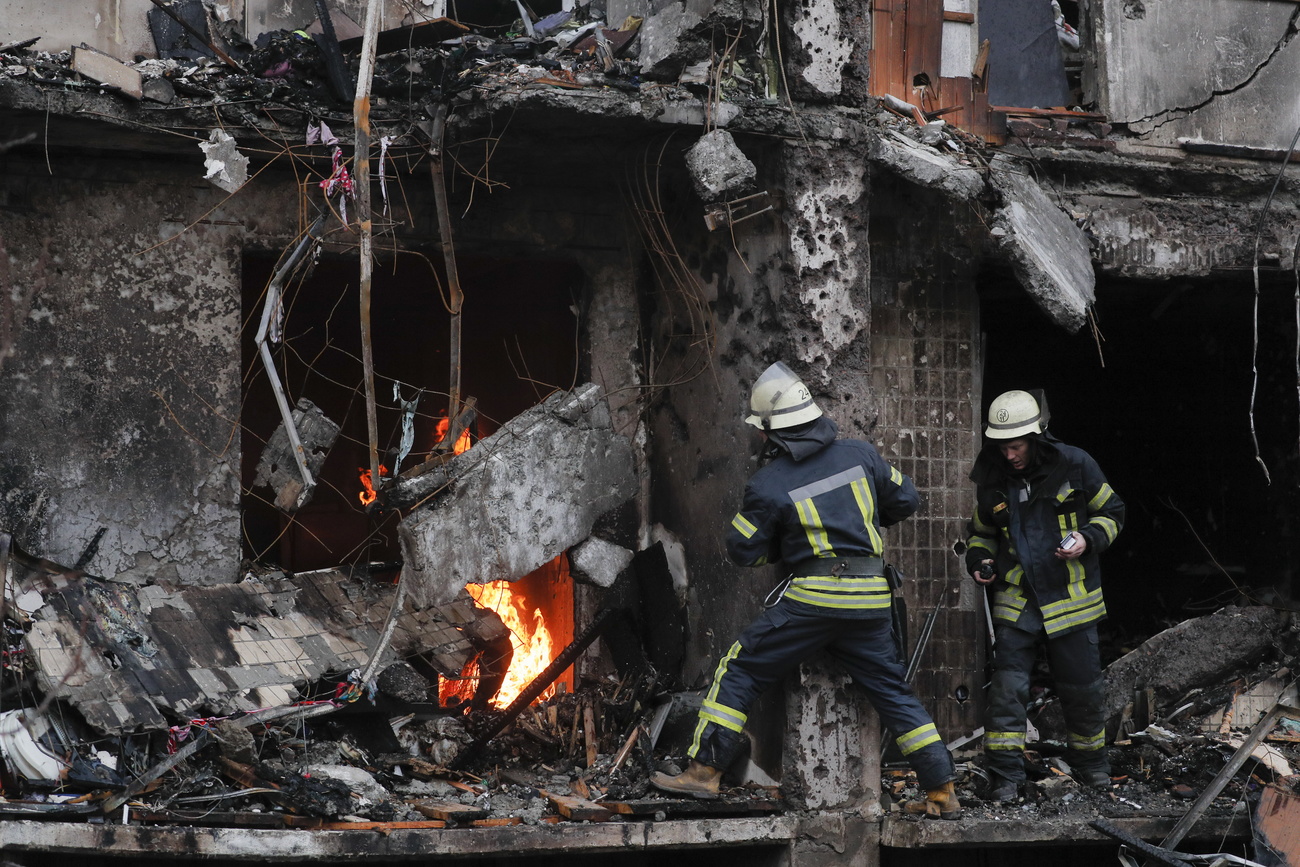
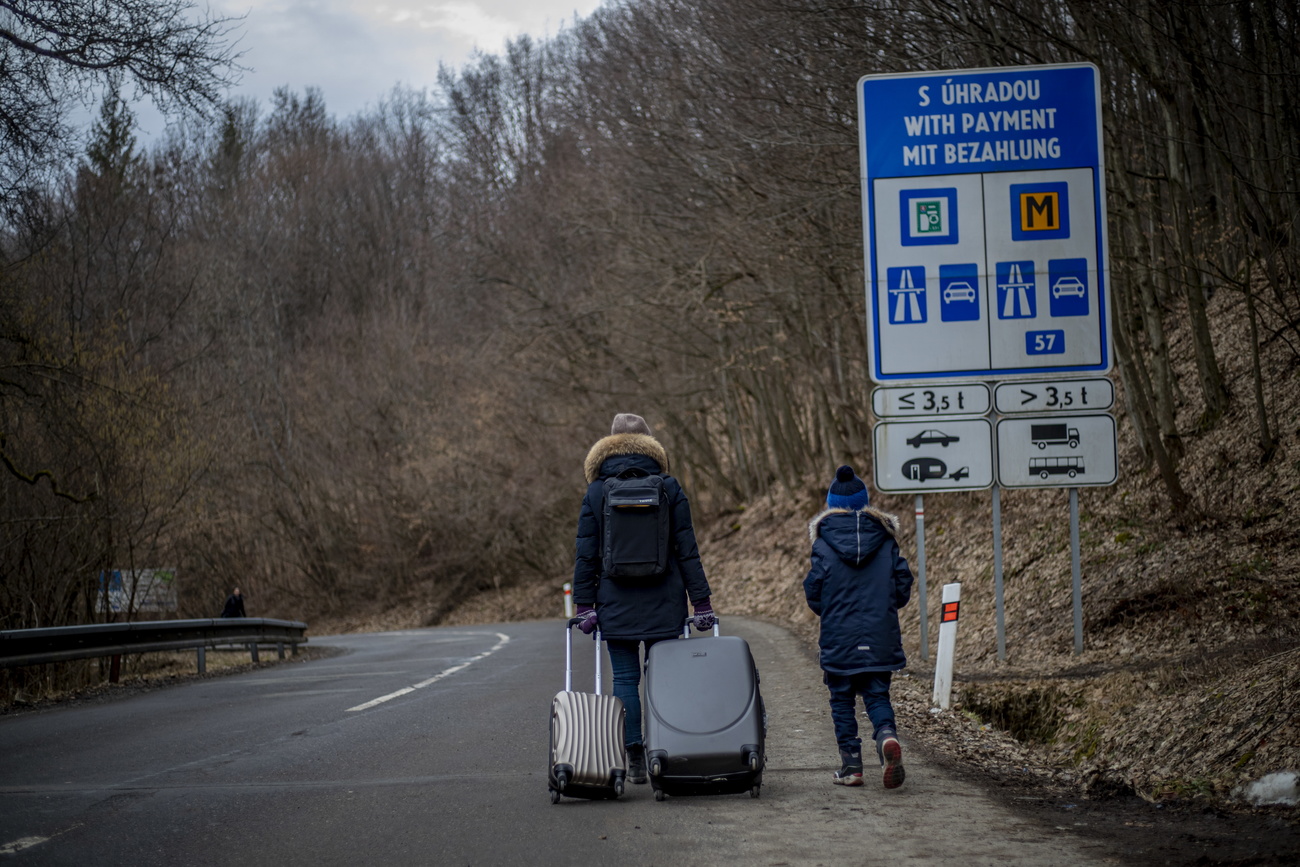
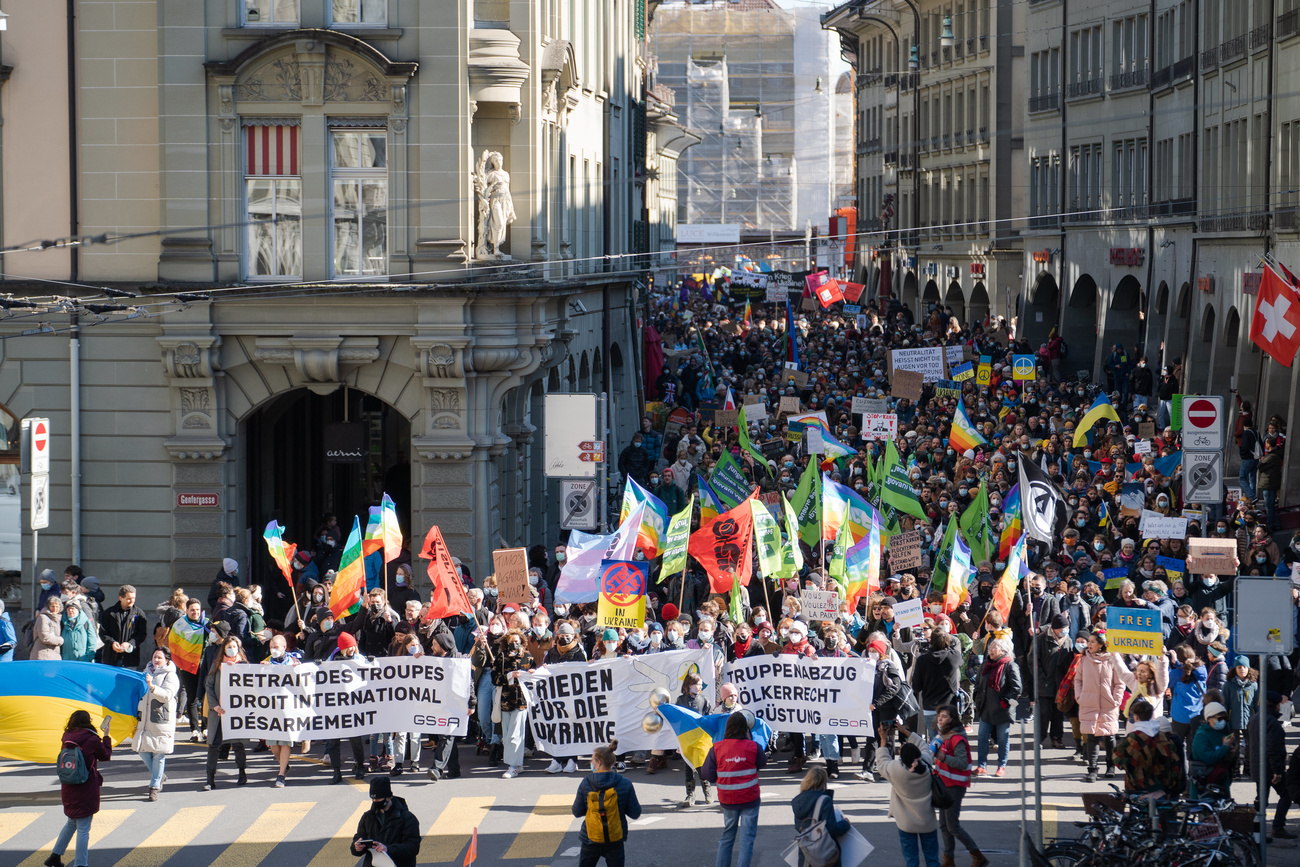
You can find an overview of ongoing debates with our journalists here. Please join us!
If you want to start a conversation about a topic raised in this article or want to report factual errors, email us at english@swissinfo.ch.